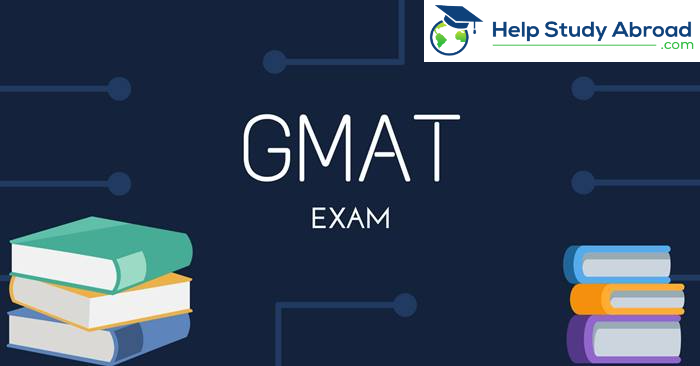1. Introduction
Embarking on the journey to conquer the Graduate Management Admission Test (GMAT) is an exciting yet challenging endeavor. As a key milestone for those aspiring to join top business schools, the GMAT plays a pivotal role in showcasing your aptitude for analytical thinking, problem-solving, and decision-making—essential skills for success in the business world. However, for beginners, navigating the complexities of this standardized test can be intimidating with proper planning, the right strategies, and a focused approach, you can set yourself up for success.
This blog outlines the top 10 GMAT preparation tips for beginners to help you kick-start your journey and ace the exam.
2. Top 10 GMAT Preparation Tips for beginners
2.1 Understand the GMAT Format
Before diving into preparation, familiarize yourself with the GMAT structure. The exam consists of four sections:
- Analytical Writing Assessment (AWA): Tests critical thinking and communication skills.
- Integrated Reasoning (IR): Evaluates your ability to interpret and analyze data.
- Quantitative Reasoning (Quant): Focuses on mathematical problem-solving.
- Verbal Reasoning (Verbal): Measures reading comprehension, grammar, and reasoning.
Understanding the format helps you identify the areas requiring attention and avoid surprises on test day.
2.2 Set a Clear Goal
Determine your target GMAT score based on the requirements of your desired business schools. Most top MBA programs list the average scores of their admitted students. Aim for a score that aligns with your goals, keeping in mind the competitiveness of your target schools. Having a clear target motivates you to stay consistent with your preparation.

2.3 Create a Realistic Study Plan
A well-organized study plan is crucial for effective preparation. Start by assessing your current skill levels with a diagnostic test. Based on your baseline score and target score, allocate sufficient time to improve each section. Typically, beginners spend 2–3 months preparing for the GMAT, studying 10–15 hours per week.
Structure your study schedule to include:
- Regular practice sessions.
- Focused reviews of weak areas.
- Periodic full-length mock tests.
2.4 Choose the Right Study Materials
The GMAT preparation market is flooded with books, online courses, and practice tests. Selecting the right resources can make a significant difference. Some trusted options include:
- The Official Guide for GMAT Review: Published by GMAC, the creators of the GMAT, this guide contains authentic practice questions.
- Manhattan Prep: Offers detailed explanations and strategies.
- Veritas Prep: Provides comprehensive study resources.
Choose resources that align with your learning style and focus on official practice questions to understand the test’s nuances.
2.5 Master the Basics of Math and Grammar
The GMAT doesn’t test advanced math or English concepts but expects you to have a strong foundation in basic principles. Focus on:
- Quantitative Skills: Review algebra, arithmetic, geometry, and data interpretation. Make sure to grasp concepts like percentages, ratios, and probability.
- Verbal Skills: Strengthen grammar rules, sentence correction, and reading comprehension strategies.

A strong foundation in these areas is essential for tackling advanced-level GMAT questions effectively.
2.6 Learn Time Management Skills
Time management is a critical skill for the GMAT, as the test is time-bound. Each section has strict time limits:
- Quantitative: 62 minutes for 31 questions.
- Verbal: 65 minutes for 36 questions.
- Integrated Reasoning: 30 minutes for 12 questions.
- AWA: 30 minutes for one essay.
Practice pacing yourself by setting time limits for individual questions and sections. During preparation, simulate the test environment to get comfortable managing your time under pressure.
2.7 Develop Strategic Problem-Solving Techniques
Success on the GMAT isn’t just about solving problems but doing so efficiently. Develop strategies such as:
- Eliminating wrong answers: Helps narrow down choices in verbal and quantitative sections.
- Estimation: Useful for quick calculations in quantitative problems.
- Skimming: Efficient for reading passages in the verbal section.
Practicing these techniques will save time and increase accuracy.
2.8 Take Full-Length Practice Tests
Regular mock tests are vital for GMAT preparation. They help you:
- Gauge your progress.
- Identify areas needing improvement.
- Build stamina for the actual test.

Start with an official GMAT practice test to assess your baseline score. Schedule additional tests at regular intervals to track improvements and refine your strategies. Analyze your performance after each test to understand mistakes and learn from them.
2.9 Stay Consistent and Adaptable
Consistency is key to mastering the GMAT. Dedicate specific hours each week to study and stick to your schedule. At the same time, remain adaptable. If certain strategies or materials don’t work for you, don’t hesitate to switch.
Track your progress weekly and adjust your plan as needed. For example, if you find yourself struggling with the Quant section, devote extra time to strengthening weak concepts.
2.10 Focus on Mental and Physical Well-being
Preparing for the GMAT can be mentally and physically taxing. Maintain a healthy lifestyle to optimize your performance:
- Sleep: Ensure 7–8 hours of sleep daily to stay alert.
- Diet: Eat nutritious meals to maintain energy levels.
- Exercise: Incorporate physical activity to reduce stress.
- Mindfulness: Practice relaxation techniques like meditation or deep breathing to stay calm during preparation and on test day.

A balanced approach to well-being enhances focus, productivity, and confidence.
3. Bonus Tips from Helpstudyabroad Team
- Understand the Scoring System: Familiarize yourself with the GMAT’s adaptive scoring to strategize effectively.
- Use Error Logs: Track and analyze your mistakes to identify recurring patterns.
- Plan for Retakes: If your first attempt doesn’t meet expectations, use it as a learning experience and prepare for a retake.
4. Final Thoughts
The GMAT is not just a test of knowledge but also of strategy, time management, and mental resilience. As a beginner, focus on building a solid foundation, staying consistent, and practicing diligently. With the right preparation and mindset, achieving your target score is well within reach.
By following these top 10 tips, you’ll be better equipped to tackle the GMAT confidently and take a significant step toward your dream MBA program. Start today, stay focused, and remember—the effort you put in now will pay dividends in your future.
Good luck!
For more information on GMAT, please follow our blogs regularly. Please contact the Helpstudyabroad Team for more guidance on GMAT and admissions abroad.
FAQ
1 What is the GMAT Exam – Focus Edition ?
The GMAT or Graduate Management Aptitude Test – focus edition, is a standardized test used by business schools for admissions to various graduate management degree programs. B-school admissions committees assess a candidate’s readiness for a management program based on their GMAT focus edition score.
2 Does Admission to B-School depend only on GMAT Score ?
Your GMAT score is one of the criteria (and not the only criterion) in your application that B-schools take into consideration. However, a good GMAT score does improve your chances of admission. It is important to choose the best GMAT classes in order to achieve a great score.
3 Do Indian B-Schools accept GMAT Score ?
Most top Indian B-schools like ISB, IIMs, XLRI, SP Jain, and others accept GMAT scores.
4 Do I need a GMAT Focus to apply for an MBA or PHD abroad ?
Depending on the type of program you’re applying for, you may be required to furnish a GMAT score. Most universities (including the best ones) consider a candidate’s GMAT score, especially for graduate management programs. Based on the Ph.D. program you’re opting for, you may have to submit a GMAT or GRE score along with your application.
5 My English and math skills are weak. Can I still get a decent score in GMAT ?
The GMAT exam does not test your theoretical knowledge of Math, English, or Grammar; instead, it tests your reasoning ability and critical reasoning skills. Rather than teaching complicated math formulas or complex grammar rules, at Jamboree, we teach the strategies that help you solve the questions quickly and accurately. Our GMAT tutors follow simplified teaching methodology and targeted learning approaches.
6 Will HelpStudyAbroad.com help me shortlist and apply for universities with my GMAT Score.
We offer Admissions Counselling services that cater to all your study abroad requirements, including university selection and application requirements. Additionally, we conduct regular webinars, info sessions, and chat sessions where you can get your admissions-related queries answered.



